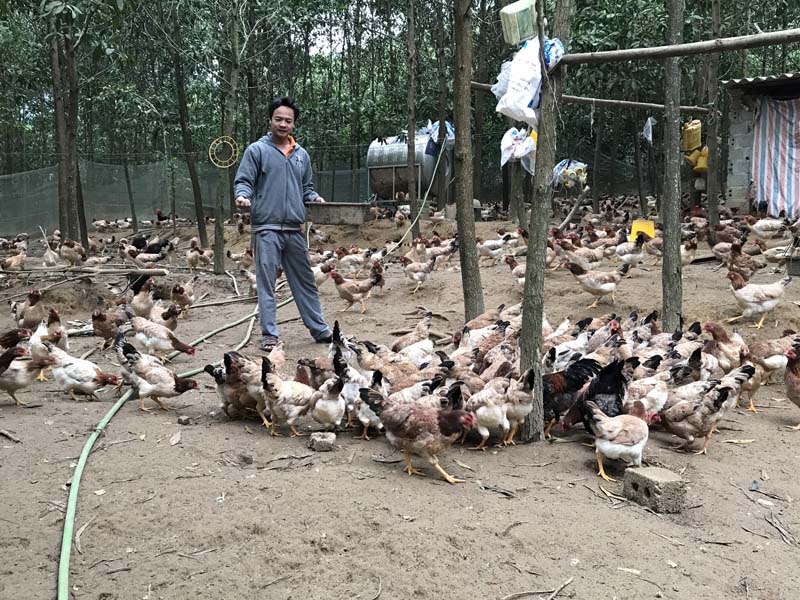


 The model of raising chickens on a hill of Mr. Quach Van Quynh's family, Dong Bi hamlet, Yen Bong commune (Lac Thuy) brings about 100-150 million VND per year.
The model of raising chickens on a hill of Mr. Quach Van Quynh's family, Dong Bi hamlet, Yen Bong commune (Lac Thuy) brings about 100-150 million VND per year.
Currently, the total herd of poultry of the whole commune has reached over 50,000 heads, mainly concentrated in Soc Bai, Dong Bip, Manh Tien hamlets with hundreds of households. The chicken breeding is mainly Lac Thuy chicken, taken from the prestigious breeding farm in the district. The farmers who follow the model of semi-grazing in combination with agriculture and forestry can get high profit.
Mr. Tran Manh Tuan, the Chairman of the People's Committee of Yen Bong Commune says "Taking advantage of the natural conditions and forested areas, the commune has encouraged people to promote and replicate the model of poultry raising combined with afforestation, creating an environment for the development of the poultry. With the existing Lac Thuy chicken brand, the quality and prestige have been affirmed for a long time, therefore, raising hill chickens is one of the local key economic development directions. Developing and expanding the chicken raising model has made a significant contribution in the hunger eradication and poverty alleviation, raising the income for the people ".
Each household of chicken raising in the commune has a scale of 2,000 to 5,000 heads. The commune still does not have a cooperative group, a chicken raising cooperative, however, the households know how to link and share experiences to improve the quality and the brand of the products in the market.
Thanks to applying the scientific and professional breeding procedures and techniques, the quality products and the stable prices, the products of the local hill chicken are increasingly known to the near and far markets. Raising chickens on hills has proved to be an effective economic development direction, contributing to raising incomes, reducing hunger and alleviating poverty and developing the local economy. Currently, the average income of the whole commune is 33.5 million VND a person every year, the poverty rate is 11.8%.